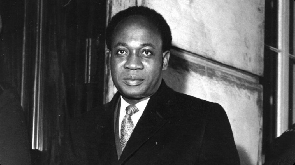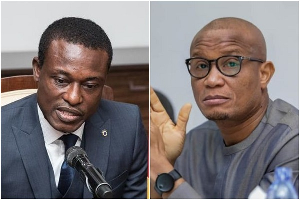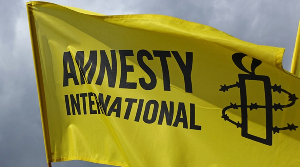Today in history, exactly 58 years ago, on 1 August 1962, Osagyefo Dr Kwame Nkrumah escaped a bomb assassination attempt on his life at Kulungugu in the Upper East Region.
On the 27th July 1962, President Kwame Nkrumah left Accra for Kumasi to attend the annual congress of the Convention People’s Party where he then proceeded after on the 31st July 1962, to Tenkudugu in the Republic of Upper Volta for a meeting with the President of the Upper Volta President Maurice Yameogo.
After the meeting with President Yameogo, President Kwame Nkrumah and his entourage made their way back from Tenkudugu on 1 August 1962 to Ghana.
Dr Nkrumah who was not scheduled to stop at Kulungugu but at the insistence of local party officials on that day decided to step out and meet the teeming crowds and inspect a hurriedly put-together parade of school children.
As he walked towards the school kids a loud explosion went off from a hand-grenade thrown a few yards away from the President.
Several of the assembled school children were blown into smithereens but the President himself escaped serious injuries.
Following the incident, a statue was built there in the Bawku West Municipality where Dr. Kwame Nkrumah was almost assassinated.

On March 6, 1957 Ghana emerged the first African nation south of the Sahara to become independent from colonial rule. Osagyefo Dr Kwame Nkrumah, whose CPP had won a convincing victory in the 1956 general election, became the first Prime Minister and Dr K.A. Busia emerged leader of the opposition.
Three years after gaining political independence on 1 July 1960. Ghana became a Republic.
The Prime Minister, Kwame Nkrumah was sworn into office, becoming Ghana’s first president.
However, in 1966 President Kwame Nkrumah was unconstitutionally ousted from office through a military coup. The Coup was launched by the National Liberation council (NLC) with the code name “Operation Cold Chop,” on February 24th, 1966 backed by the C.I.A.
General News of Saturday, 1 August 2020
Source: ghanaianmuseum.com













